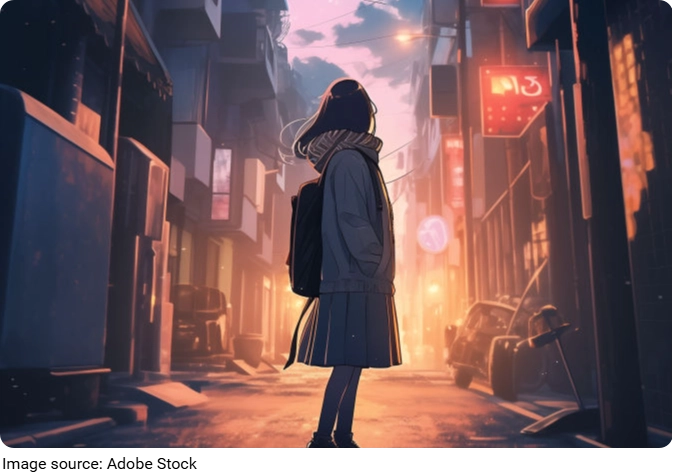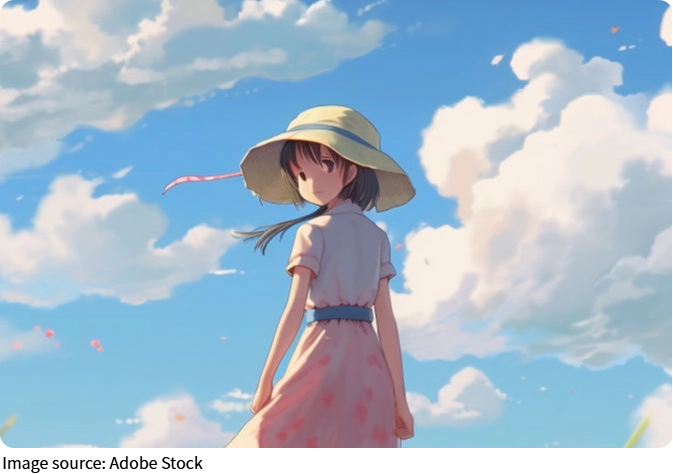The Art of Soundtrack

Anime is an art form that thrives on visual storytelling, but one of the most significant elements that often goes unnoticed is the soundtrack.
Music is not just an accompaniment; it's a character in itself, playing a pivotal role in setting the emotional tone and enriching the narrative.
From heart-pounding story sequences to tear-jerking moments of introspection, the right soundtrack elevates an anime series, making it unforgettable. As anime fans, we've all had moments where the music made a scene resonate with us on a deeper level. In this article, we'll explore the art of anime soundtracks, focusing on how music enhances emotions and drives the story forward.
The Emotional Impact of Music in Anime
At its core, anime is about evoking emotions—whether it's excitement, sadness, nostalgia, or even fear. Music plays a crucial role in amplifying these emotions. When we think of some of our favorite anime, the iconic tracks often come to mind. For example, the haunting melodies of Your Name (Kimi no Na wa) stir feelings of longing, while the intense score of Attack on Titan brings forth a sense of urgency and dread. Without these soundtracks, the emotional impact would be far less effective.
Music in anime has the power to make moments unforgettable. Think about how a subtle piano piece can accompany a quiet moment of reflection, or how a fast-paced orchestral score can heighten the intensity of a battle. These musical cues are not just random; they are meticulously crafted to enhance the emotions being portrayed on screen. Without the right soundtrack, the emotional weight of a scene can feel flat or underwhelming.
Creating Atmosphere: Music Sets the Mood
One of the primary roles of an anime soundtrack is to establish the atmosphere. Whether the scene calls for something lighthearted, melancholic, or dramatic, music has the ability to instantly create the right mood. For example, Spirited Away uses a mix of traditional Japanese instruments and orchestral music to transport us into a fantastical world, making the viewer feel both enchanted and curious. Meanwhile, Cowboy Bebop blends jazz with futuristic beats to evoke a sense of cool, relaxed nostalgia, fitting perfectly with its space-western theme.
The choice of instruments and melodies sets the stage for what is to come, guiding the viewer's emotional responses even before the action unfolds. A cheerful, upbeat tune can signal a carefree moment, while a slow, melancholic melody suggests sadness or loss. This ability to create a mood is one of the main reasons music is so deeply integrated into anime culture.
Music as a Narrative Tool
While we often associate music with emotion, it also plays a key role in advancing the plot. Many anime composers use music to underline the themes of a series or provide subtle foreshadowing. For example, in Neon Genesis Evangelion, the somber opening theme "A Cruel Angel's Thesis" is not only an iconic track but also sets the tone for the darker, psychological journey the series explores. The music often reflects the internal struggles of the characters, giving us insight into their emotional states without needing a single word of dialogue.
In some cases, certain musical themes are tied to specific characters or events, becoming a symbol of their journey. In Naruto, for instance, the iconic "Sadness and Sorrow" theme is used to represent the loneliness and internal conflict of the protagonist, Naruto Uzumaki. As the series progresses, the music evolves, mirroring Naruto's growth and his changing relationship with his village and friends. This use of recurring motifs helps strengthen the connection between the audience and the story.
Iconic Anime Composers and Their Impact
Behind the powerful soundtracks of our favorite anime are talented composers who work tirelessly to ensure that the music enhances the storytelling. Composers like Yoko Kanno, Joe Hisaishi, and Hiroyuki Sawano are just a few examples of individuals whose work has become synonymous with anime's emotional depth.
• Joe Hisaishi, known for his collaboration with Studio Ghibli, created timeless scores for films like My Neighbor Totoro and Princess Mononoke. His music has a unique ability to blend the whimsical with the profound, bringing out the full emotional range of the films.
• Yoko Kanno, who is known for her work on Cowboy Bebop and Ghost in the Shell: Stand Alone Complex, brings a dynamic and genre-defying approach to anime music. Her ability to seamlessly blend jazz, blues, classical, and electronic sounds has made her one of the most influential composers in the anime industry.
• Hiroyuki Sawano, a contemporary composer, has become famous for his epic and emotional scores, particularly in anime like Attack on Titan and Blue Exorcist. His use of powerful orchestration, electronic elements, and choral arrangements creates a visceral, cinematic experience that elevates the stakes of every scene.
These composers not only enhance the emotional experience of the viewer but also influence how music is perceived in anime as an integral part of storytelling.

The Lasting Legacy of Anime Soundtracks
The influence of anime soundtracks extends beyond the screen and into the real world. Fans often engage with anime music long after they've finished watching a series, whether by attending live orchestra performances, purchasing soundtracks, or creating fan covers and remixes. Anime soundtracks have become a subculture in their own right, with iconic pieces being performed in concert halls around the globe.
Additionally, many anime soundtracks are praised for their ability to transcend the medium of anime, with tracks often becoming popular outside the anime community. For instance, A Cruel Angel's Thesis from Neon Genesis Evangelion and The Real Folk Blues from Cowboy Bebop are widely recognized as some of the best anime songs ever composed, loved even by those who may not have seen the series.
Conclusion: The Soul of Anime
In conclusion, the art of anime soundtracks is far more than just background music. It's a vital aspect of anime that helps bring the characters, themes, and emotions to life. Through music, we connect with the anime on a deeper level, experiencing its highs and lows alongside the characters. From the unforgettable scores of Studio Ghibli to the dynamic compositions in Attack on Titan, the impact of anime soundtracks is undeniable.
So, next time you watch your favorite anime, pay attention to the music. It's not just there to fill the silence—it's there to tell a story of its own. What's your favorite anime soundtrack, and how has it impacted your experience with the series? Let's talk about it in the comments!


